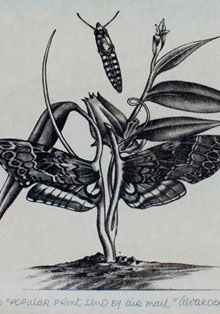Sergi Rodríguez López-Ros
Pro-Rector of the Universitat Abat Oliba CEU of Barcelona
The turn of the year in the Orthodox calendar, January 14, has brought to the geostrategic chessboard a military crisis such as Europe has not remembered since 1962, with the Cuban missile crisis. It is typical of the celebration of these dates to start the year with new projects, which for Russia has undoubtedly been to try to move from regional to world leadership, thus greening the laurels that withered in 1989. Such is the root of the crisis that began last March 3.
If there is one thing Russians and Ukrainians share, it is Orthodox faith and natural resources. And both have been, in my opinion, the reason why Russia has chosen Ukraine, not Armenia or Georgia, to envy the big one in the game it is playing with the West to show its decadence and to counterpose, in front of it, the Russian way of returning to cultural pride. But let’s go step by step.
Because of his past in the former USSR, Putin has from the beginning of his various mandates the concept of Great Russia, that is to say, that the former territories of the Soviet Union should once again form a single State. Having been unable to do so with the Baltic and Caucasian republics, and having almost succeeded with Belarus, Ukraine has appeared in his plans as a priority and, we would almost say, a critical objective.
The main reason is economic. Ukraine has the second largest gas reserves in Europe, after Russia. Its membership in the orbit of the European Union deprives Russia of its ability to influence by depriving the rest of Europe of gas. In addition, its electrical capacity, with 15 nuclear power reactors, makes it one of the most important atomic powers in the world, which is essential in a Europe where most countries have closed their nuclear power plants. It also has huge reserves of oil and coal. Finally, it represents one of the world’s largest arms exporters, with customers such as India, Saudi Arabia and Turkey. Let us not forget that, in the former USSR, Ukraine was the second largest contributor to the Soviet GDP thanks to its agricultural, livestock, metallurgical and mining power.
Russia and Germany, aware of this, are using Ukraine as a bargaining chip. If it falls back into the Soviet orbit, as it did between 1921 and 1991, the European Union will depend on Putin for energy supplies. If not, it will see its influence expand to the largest Russian border, as Ukraine, the largest country in Europe after Russia and Turkey, has 1,576 km of border with Russia, which acts as a retaining wall against the Greater Russia project, including its access to the Black Sea. Hence the annexation of Crimea to Russia, after invading it, in 2015, which caused the worst crisis in Russia-US relations since the end of the Cold War. The European Union cannot allow further Russian expansion at the expense of Ukrainian soil. Hence NATO has pulled out all the stops and US President Joe Biden himself, without breaking with the doctrine he established last year when leaving Afghanistan, has threatened the biggest sanctions in history.
However, it is not all about economics. Ukraine is of great importance in the Russian imagination. Not only was it the second republic in size, population and economy of the USSR, but both republics, unlike Armenia and Georgia, shared the same Orthodox patriarch, that is, the one in Moscow. The Georgian Apostolic Orthodox Church and the Armenian Apostolic Gregorian Church have never depended on the Patriarch of Moscow. Hence the decision of the Ecumenical Patriarchate of Constantinople to grant autocephaly to the Ukrainian Orthodox Church in 2018, making it independent from the Russian Orthodox Church. Let us not forget that that decision led the Russian Orthodox Church to break communion with the Ecumenical Patriarchate that same year, initiating a schism in the Orthodox Church.
The figures were eloquent: that split took 20 million faithful away from the Patriarch of Moscow. In fact, the part of the Ukrainian Orthodox Church that still depends on the Moscow Patriarch has its areas of influence in the most pro-Russian areas of Ukraine. And the percentage of pro-Ukrainian and pro-Russian Ukrainian population corresponds almost exactly to the sum of the faithful, on the one hand, of the Ukrainian Autocephalous Orthodox Church and the Ukrainian Greek Catholic Church and, on the other hand, to the Ukrainian Orthodox Church dependent on the Moscow Patriarchate. The signing of the autocephaly, on January 5, 2019, was a severe blow to the national pride of Greater Russia which now, after the paralysis brought about by the pandemic, is surfacing again, just as it happened with the nationalist tensions that communism paralyzed during its hegemony in the area.
© All rights reserved






